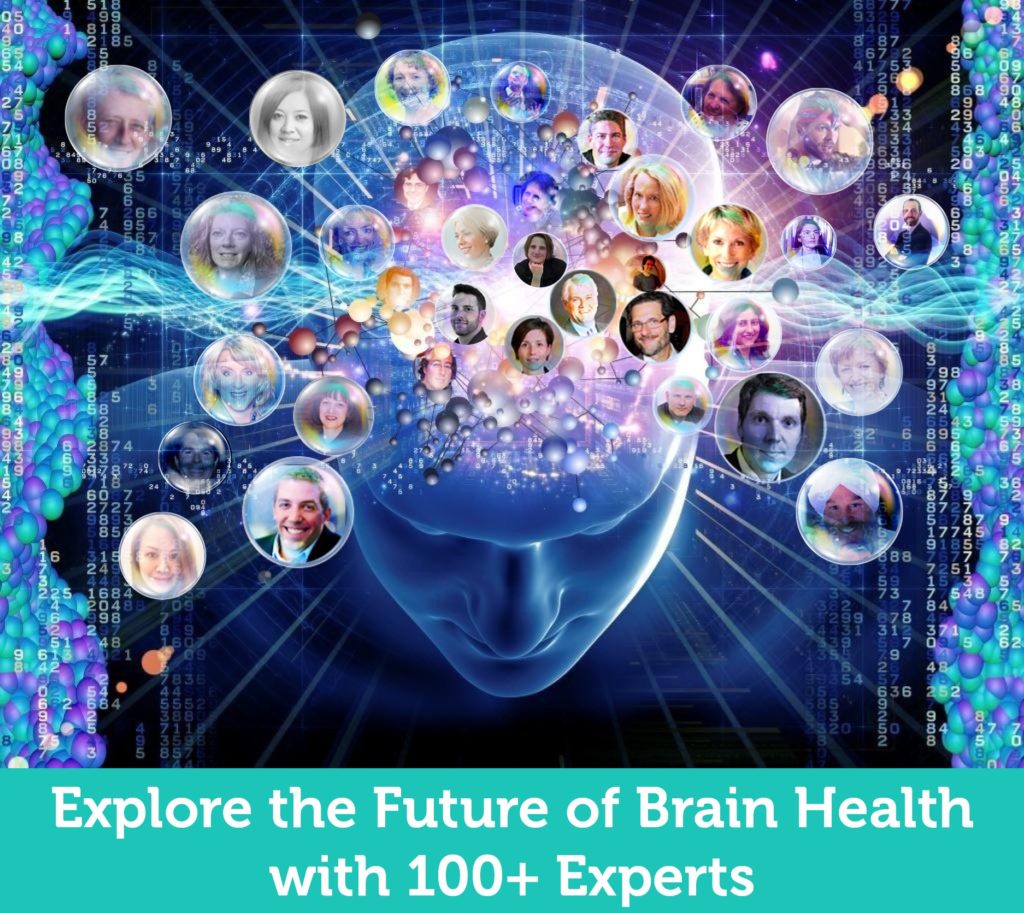5 Facts You Need To Know To Understand, Navigate And Enjoy The Digital Brain Health Revolution
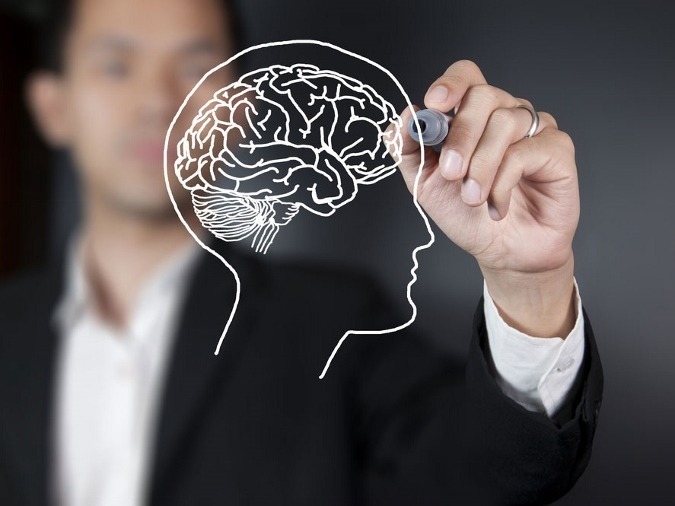 —
—
Hundreds of companies around the globe, now including Elon Musk’s Neuralink and even Facebook, are researching and developing new ways to help brain owners be smarter, sharper, and healthier.
What explains this flurry of activity? Where may it be headed?
To help you understand what’s going on, let me highlight five key facts that emerged from the recent SharpBrains Virtual Summit.
Fact 1. There are 7.5 billion human brains out there, and everyone needs help
Consider all unmet needs derived from the traditional pharma-exclusive approach to brain health.
Learning and cognitive disabilities in children are growing significantly, from ADHD and OCD, to autism. The related emotional and economic burden is substantial — yet, over 60–70% of those with treatment have poor outcomes, and many who need help don’t get any.
Globally, around 350 million people suffer from depression. Add to that substance abuse, and we are talking hundreds of millions of people without proper care and very high relapse rates for the lucky ones getting help.
Concussions and brain impairments pervade through millions of veterans and high-contact sports practitioners, yet diagnosis and treatments are elusive.
And let’s not forget the perfectly healthy.
 What can we do to strengthen brain connectivity at any age, enhancing complex problem-solving, novel thinking, emotional intelligence, agility & flexibility and strategic leadership – considered to be the top skills to suceed in the Fourth Industrial Revolution as described by the World Economic Forum?
What can we do to strengthen brain connectivity at any age, enhancing complex problem-solving, novel thinking, emotional intelligence, agility & flexibility and strategic leadership – considered to be the top skills to suceed in the Fourth Industrial Revolution as described by the World Economic Forum?
Additionally, we all age one day at a time and (hopefully) will live longer and longer lives, so addressing aging-related cognitive decline should be a top priority, and one where repeated pharmacological-driven attempts have proven to be a disappointment.
In short: for one reason or another, the fact is that 7.5 billion human brains need access to better and cheaper brain health and mental health solutions.
Fact 2. Lifelong neuroplasticity means all those brains can “sculpt” themselves
“Every man can, if he so desires, become the sculptor of his own brain” — neuroscience pioneer Santiago Ramón y Cajal
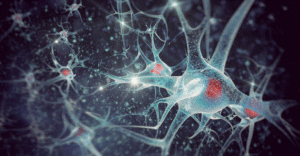 Innovation is enabled by the core fact—called neuroplasticity–that the human brain continually changes itself through experience. Neuroplasticity–or brain plasticity– refers to the brain’s ability to rewire itself based on experience by generating new neurons and by forming new connections between neurons, among other factors. It was believed for a long time that, after a certain age, the brain became “fixed.” Now we know that the brain never stops changing, and that’s why there’s so much interest and hope around ways to harness that neuroplasticity to lead better lives, to enhance our brains, to delay brain health decline.
Innovation is enabled by the core fact—called neuroplasticity–that the human brain continually changes itself through experience. Neuroplasticity–or brain plasticity– refers to the brain’s ability to rewire itself based on experience by generating new neurons and by forming new connections between neurons, among other factors. It was believed for a long time that, after a certain age, the brain became “fixed.” Now we know that the brain never stops changing, and that’s why there’s so much interest and hope around ways to harness that neuroplasticity to lead better lives, to enhance our brains, to delay brain health decline.
What follows from this fact is that we can strengthen specific circuits of the brain (through education, our jobs and lifestyles, and also through mental exercises, meditation and neurostimulation), in order to learn faster, better and become more resilient.
Fact 3. Mobile, sensing, wearable technologies, coupled with AI, provide a new platform to harness that neuroplasticity for good
We are witnessing the coming of age of a very promising pervasive neurotech toolkit enabling new digital brain health solutions.
For example:
- Easier access to meditation and mindfulness practices via apps, bio/ neurofeedback
- Personalized medicine and increased adherence via gamification and artificial intelligence (AI)
- Sensorimotor and physiological improvements via Virtual and Augmented Reality
- Non-invasive Cognitive enhancement through targeted interventions adaptive in real-time, enabling better learning and consolidation
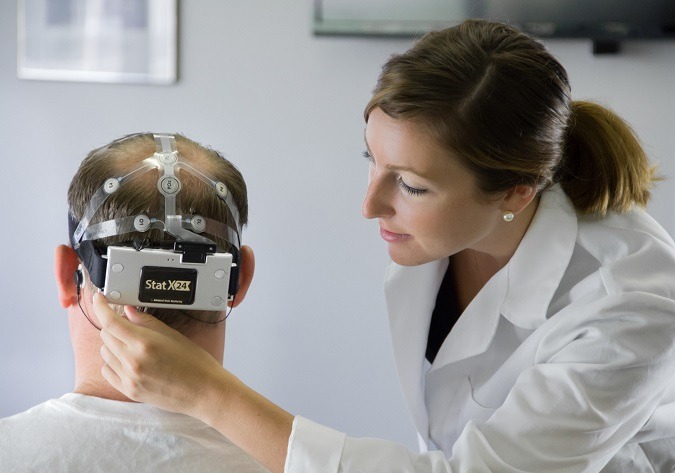 —
—
At the Summit we saw any pioneers are working on ways to “harness neuroplasticity for good” via cognitive assessments and therapies (BrainHQ, CogniFit, Akili, Pear Therapeutics, MyndYou, Click Therapeutics, Cogniciti, SBT Group) mindfulness apps (Claritas Mindsciences), EEG (Emotiv, Interaxon’s Muse) virtual reality (MindMaze), and more.
Mindfulness is another area with growing activity. Claritas Mindsciences, for one, is working to better manage addictions via mindfulness training — preliminary findings show that the brain is able to disassociate the connection between craving and addictive behavior.
Education giant Pearson has been buying and licensing digital assessments and cognitive therapeutics intervention tools, such as Cogmed and RehaCom, while the Educational Testing Service (ETS), is using Big Data and machine learning platforms such as IBM Watson to identify at-risk learners and help with timely and targeted interventions.
(Click here to Learn from 100+ Brain Experts, Watch 40+ Hours at the Leading Edge)
Fact 4. Entrepreneurship and investments are fueling accelerated growth
With both private and public investments backing innovation in the digital brain health space, the future does look sharper, healthier and brighter.
 Merck Ventures–an evergreen $300m digital health fund backed by Merck—is seeking investments in digital and platform technologies that enable Assessment, Intervention and Treatment, and has five investments in neurology-related companies, including a sizable one in Akili Interactive Labs. Akili’s vision, as discussed in the Summit, is to have FDA-approved monitoring and treatment environments that certify the validity of efficacy to address a variety of mental health issues.
Merck Ventures–an evergreen $300m digital health fund backed by Merck—is seeking investments in digital and platform technologies that enable Assessment, Intervention and Treatment, and has five investments in neurology-related companies, including a sizable one in Akili Interactive Labs. Akili’s vision, as discussed in the Summit, is to have FDA-approved monitoring and treatment environments that certify the validity of efficacy to address a variety of mental health issues.
Similarly, Pear Therapeutics is developing app-based monitoring and gamification to tackle challenges such as substance abuse disorder, PTSD, anxiety, Insomnia, traumatic injury, and ADHD, in partnership with various labs and pharma companies, with the intention to reduce costs and ensure a higher patient retention. Pear is backed by Jazz Ventures and its products are in the process of securing regulatory approval.
Another exciting start-up, MindMaze, raised US$100M in 2016. MindMaze is working on using virtual reality (VR), augmented reality (AR), computer graphics, brain imaging & neuroscience to treat patients with patients with a variety of brain injuries.
There is also growing investments from public sources, especially in the US and Canada.
The National Institute of Mental Health (NIMH) runs the Small Business Innovation Research Program (SBIR) and Small Business Technology Transfer Research Program (STTR), helping start-ups commercialize research. Interestingly, the majority of funding since 2005 has been aimed at supporting IT-related initiatives: out of the portfolio of US$325m and 528 investments, 46% are in IT, 20% in Drug development, 12% in Research Tools, 8% in Software for data analysis and sharing.
Up north, Baycrest recently secured five year funding of $124m from the Governments of Canada and Ontario, industry and various donors to build the new Canadian Centre for Aging & Brain Health Innovation (CC-ABHI), with a mission to accelerate, innovate and drive adoption of proven brain health products, such as web-based cognitive assessment Cogniciti.
Fact 5. Professionals are stepping up to help educate consumers and patients
All this flurry of innovation has, unfortunately, also led to much confusion and controversy.
Professional guidance is going to be important. When you see all the apps for (a) mindfulness, such as Headspace, Happify, (b) cognitive training like Lumosity, Peak, CogniFit, © medical, FDA-grade treatments such as Akili Interactive Labs, Pear Therapeutics and (d) EEG wearables such as Muse and Emotiv, you may be thinking, this is great, but how will consumers know what to use and what not to, and how and when?
Fortunately, there’s growing interest by front-line practitioners who want to help harness the new toolkit in appropriate ways. For example, the American Academy of Clinical Neuropsychology (AACN) announced at the 2016 virtual Summit a new Disruptive Technology Initiative to accelerate the development of “assessments and/or intervention-prevention-improvement of cognitive functions, accessible to the entire population.”
Many of the Coaches and Psychologists of the Future–represented in the SharpBrains Summit by the Institute of Coaching, the Watson Centre for Brain Health, among others–are expanding their practices with latest brain & cognition findings and neurotechnologies, and helping end-users navigate and integrate the growing range of options — For example, the framework below, coming from the book The SharpBrains Guide to Brain Fitness, shows how to integrate and prioritize the multiple pieces in the brain health puzzle, using technology to augment (not to replace) our lifestyles.
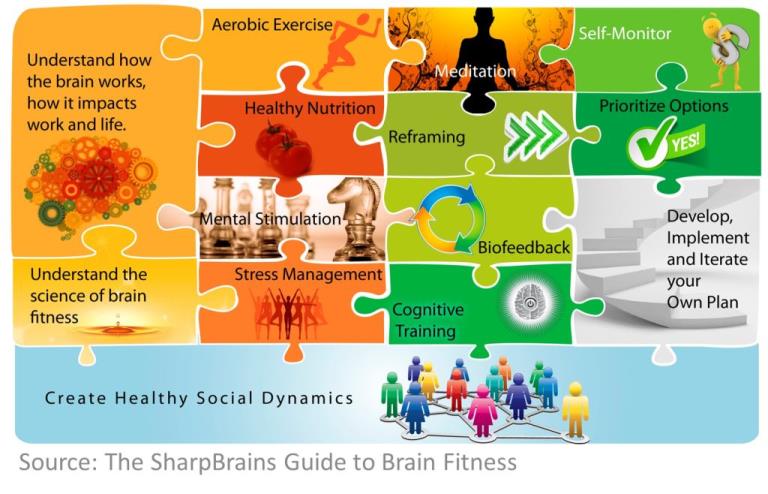
“The future is already here — it’s just not very evenly distributed” — essayist William Gibson.
Well, let’s take on that distribution challenge and help appropriately spread the knowledge and the tools :-)
— Alvaro Fernandez, proud producer of the annual SharpBrains Virtual Summit, is a member of the World Economic Forum’s Council on the Future of Human Enhancement and a Judge of the Global Teacher Prize.
Additional resources:

